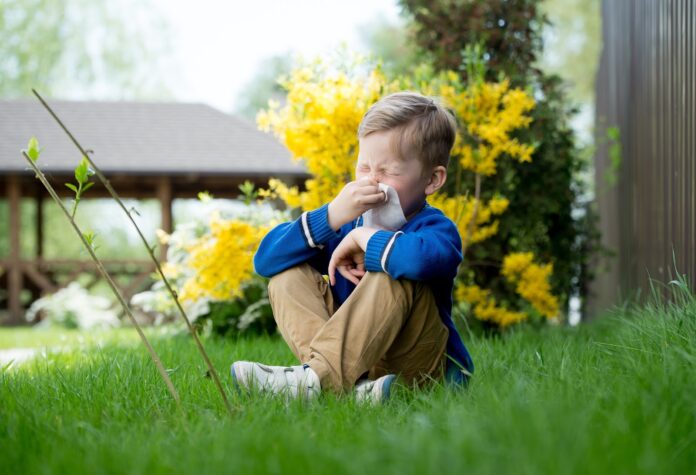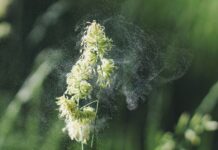Amid reports that some types of pollen and other allergens could be released earlier in the year and for longer durations as temperatures rise, the estimated 10 million Brits who experience hay fever symptoms will be seeking ways to minimize their exposure and alleviate their discomfort.1,2
Almost half of sufferers said hay fever has stood in the way of their passion for gardening, whilst four in 10 said their garden becomes a “no go zone” during peak pollen season.3 With this in mind, a London Rubbish Removal Company has provided expert tips on how to pollen-proof your home and garden ahead of allergy season.
-
Choose pollen free or low-pollen plants
In order to avoid hay fever symptoms, it is important to choose pollen free or low-pollen plants when gardening. Plants such as geranium, iris, ferns, hosta, rosemary, begonia, tea plants, clematis, lilies and daylilies are all low-pollen plants.
It’s also important to choose the right plants to keep your home free of allergens. Recommended indoor houseplants with low pollen content are pansies, periwinkle, tea plants, marigolds, thyme, golden pothos, lounge palm and aloe vera.
Be careful with the placement of plants and flowers inside your home. Try to avoid sleeping near them, allocate plant-free rooms and be sure to place them away from windows and doorways.
-
Keep your home and garden fresh
Cleaning and organising your home is the most essential step to prevent pollen from accumulating in every corner and surface. This can be done by removing dust and vacuuming your home as often as you can each week. Avoid wearing shoes indoors that you have worn outside or in the garden, as this will bring external pollen indoors.
As well as this, wash your bedding, mattress, pillowcases and clothes at least once a week to remove any built-up allergens. Opting for hypoallergenic materials for your clothing and bedding materials can also help to reduce allergy risks and symptoms.
Keep your garden clean by mowing unnecessary grass and cutting weeds regularly every week. Similarly, practices such as recycling green waste, mulching, pruning and trimming plants are key, as they promote air circulation and reduce the build-up of dead plant material and mould that can attract pollen and pests.
-
Declutter your belongings and garden equipment
To prevent pollen accumulating in concealed areas, it is essential to declutter your living space. Now is the time to eliminate any unnecessary items and organise or store clutter throughout the home.
To support an allergen-free home environment, consider donating or repurposing items you no longer use. Effective waste management not only prevents the buildup of dirt and allergens indoors but also minimises hiding spots for pollen.
Cultivate a habit of regularly maintaining your living space by incorporating simple cleaning routines. Ensuring proper ventilation by airing out rooms regularly can significantly reduce the presence of allergens and pollen, contributing to a more comfortable and healthy home.
-
Purify the house and garden during the right hours
The key to keep your garden spotless and allergy-free is to take care of it at the right times. The highest pollen count accumulates between 5am and 10am and between 7pm and 10pm. It’s best to stay out of the garden at these times and enjoy or work in the garden in the late afternoon, early evening — or even before dawn if you’re an early riser.
When ventilating the house, avoid these peak pollen hours. During these hours you can make use of air conditioners and air purifiers, as they will cool your home safely thanks to their pollen-filtered air.
-
Shower and wash your pets
Remember to mitigate the accumulation of pollen in your daily routine by showering and washing your hair regularly. This simple practice helps remove any pollen that may have adhered to your skin and hair throughout the day.
It may be surprising to find that pets can collect dust, mould, and pollen in their fur, so it’s essential to bathe them more frequently during allergy season. Consider restricting their access to areas like your bed, bedroom, or sofa to minimise the transfer of allergens in the home.
Credit: https://rainbowrubbishremovals.co.uk/
Help keep news FREE for our readers
Supporting your local community newspaper/online news outlet is crucial now more than ever. If you believe in independent journalism, then consider making a valuable contribution by making a one-time or monthly donation. We operate in rural areas where providing unbiased news can be challenging. Read More About Supporting The West Wales Chronicle
























